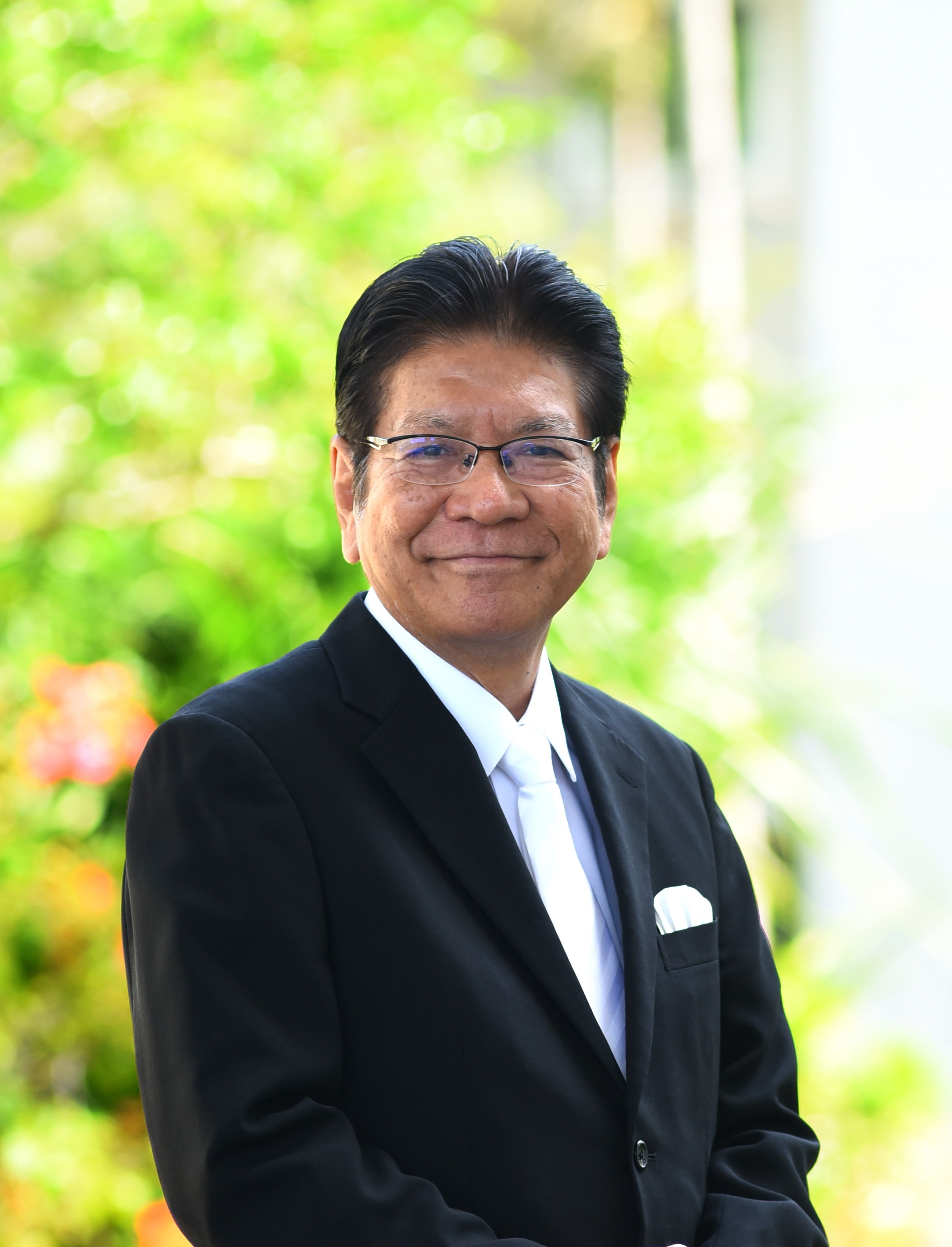Ken Oshiro, Principal of Elementary School & Junior High School
I graduated from the Faculty of Education at University of the Ryukyus and its Graduate School (Master’s Program) and taught English in public junior high schools and high schools for 15 years. Afterwards, I worked for 9 years at Okinawa International University and 16 years at University of the Ryukyus, specializing in second language acquisition, English teaching methods, early English education, immersion education, and foreign language education policy.
Immersion education is a form of language education program that uses a second language, not the students’ first language, as the language of instruction (teaching most subjects in the target language). It originated in Quebec, Canada (a French-speaking region), in the 1960s, when English-speaking parents wanted their children, who had no French background, to acquire high proficiency in French. This program was later recognized for its high effectiveness by teachers and researchers, and rapidly spread throughout North America and Europe. Krashen (1989), one of the renowned researchers, describes immersion education as “not simply another successful language teaching program―it may be the most successful language teaching program ever recorded in the professional literature.”
Subsequently, I was drawn to immersion education and began reading literature on the subject. From 2005 to 2007, I had opportunities to research Japanese immersion schools in the United States and English immersion schools in Spain. I was inspired by the high linguistic abilities of the students (refer to the “Comprehensive Study of English Education Rooted in Local Communities” Grant-in-Aid for Scientific Research Report, 2008). Later, AMICUS International School was established, and since its establishment, I have visited the school several times and was amazed to see that the students had acquired high English proficiency, maintained their Japanese ability, and learned appropriate academic content for their age level (refer to “The Achievements and Challenges of English Immersion Education in Japan: The Case of Okinawa AMICUS International School,” commissioned research by the Society for Testing English Proficiency, 2016).
The common philosophy in the immersion schools mentioned above is that the more diverse languages and cultures are, the more necessary it becomes to have foreign language skills as a tool for understanding each other, otherwise misunderstandings and conflicts arise. However, even more important is the idea that it is not enough just to be able to use a foreign language. As languages, cultures, and values become more diverse, it is crucial to cultivate the ability to think for oneself, learn, act independently, and forge their own paths for the future. This is precisely the educational philosophy and vision of AMICUS.
I will no longer just be an observer but will embrace the significant mission and role of further advancing AMICUS. As society grows increasingly complex and diverse, entering an unpredictable era, I am committed to collaborating closely with my teachers and staff to ensure our children not only achieve high English proficiency but also develop the capacity for independent thought, learning, and action in an environment that empowers them to forge their own futures.


